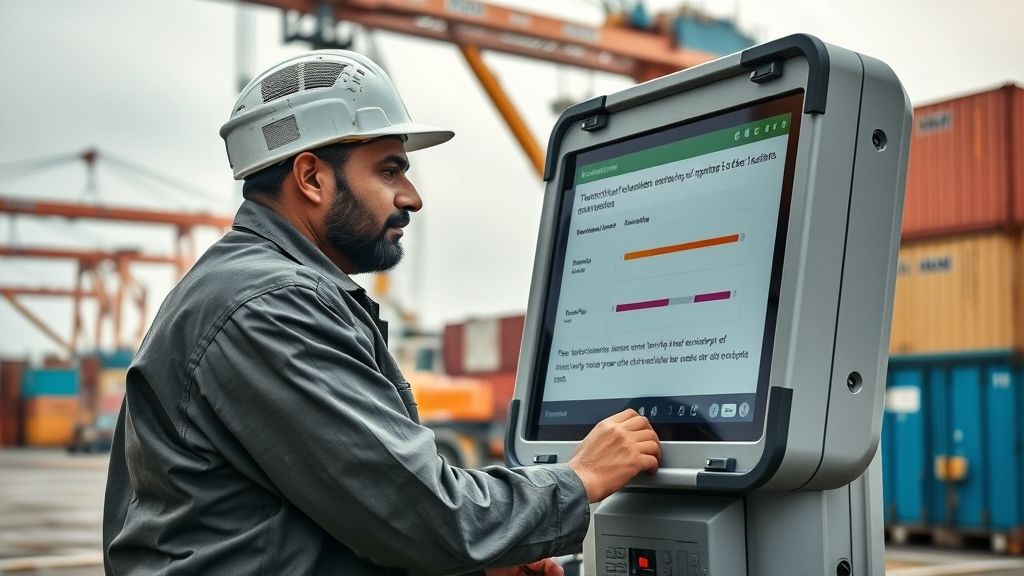Executive Summary
Employee Self-Assessments are a cornerstone of modern HR strategies, enabling organizations to foster growth, improve performance, and align employee goals with business objectives. In today’s evolving workforce, especially in regions like the UAE, Saudi Arabia, Kuwait, and Europe, these assessments play a pivotal role in enhancing transparency, accountability, and employee engagement. By encouraging employees to reflect on their strengths, weaknesses, and career aspirations, companies can create a culture of continuous improvement. This article explores the significance of Employee Self-Assessments, best practices, common challenges, and actionable solutions to optimize their effectiveness in diverse work environments.
Chapter 1: Introduction to Employee Self-Assessments
Employee Self-Assessments are a structured process where employees evaluate their own performance, skills, and contributions to the organization. This practice is essential for fostering self-awareness, professional development, and alignment with company goals. In regions like the UAE and Europe, where diverse workforces and strict labor laws prevail, Employee Self-Assessments help ensure compliance while promoting a culture of fairness and transparency. For example, UAE labor laws emphasize performance reviews as part of employee rights, making self-assessments a legal necessity in many cases.
Culturally, Employee Self-Assessments must be tailored to respect local norms. In the Middle East, indirect communication styles may require a more nuanced approach, whereas European workplaces often favor direct feedback. HR departments must balance these cultural differences to maximize the effectiveness of self-assessments. Real-world examples include multinational companies in Dubai using self-assessments to bridge cultural gaps and European firms leveraging them for career development programs.
For further reading, refer to SHRM’s guidelines on performance management and the UAE Ministry of Human Resources for legal frameworks. Employee Self-Assessments, when implemented correctly, can transform organizational performance and employee satisfaction.
Chapter 2: Best Practices for Employee Self-Assessments
Detailed Strategies and Methodologies
Effective Employee Self-Assessments require a structured approach. Begin by setting clear expectations: employees should understand the purpose, criteria, and format of the assessment. Use SMART (Specific, Measurable, Achievable, Relevant, Time-bound) goals to guide self-evaluations. For example, a sales team in Saudi Arabia might assess their quarterly targets against actual performance, identifying areas for improvement.
Regular feedback loops are critical. Combine self-assessments with manager reviews to ensure alignment and objectivity. Case studies from European tech firms show that bi-annual self-assessments, paired with 360-degree feedback, lead to higher employee engagement and productivity. Additionally, provide training on self-reflection techniques to help employees articulate their achievements and challenges effectively.
How Allianze HR Consultancy Helps
- Free Hiring Model: Allianze HR Consultancy operates on a zero-cost model for job seekers, ensuring accessibility and fairness. This approach attracts top talent while reducing financial barriers for candidates.
- Ethical Sourcing: Allianze sources talent from South Asia with full compliance to labor laws and ethical standards. Rigorous vetting processes ensure candidates meet both skill and cultural fit requirements.

Allianze’s services extend beyond recruitment, offering end-to-end HR solutions, including performance management systems tailored for Employee Self-Assessments. Their expertise in regional labor laws and cultural nuances ensures seamless integration of self-assessment practices across multinational teams. By partnering with Allianze, companies can optimize their HR strategies while maintaining ethical and legal compliance.
Chapter 3: Common Challenges and Solutions
Implementing Employee Self-Assessments comes with several challenges:
- Lack of Clarity: Employees may struggle to understand assessment criteria. Solution: Provide clear guidelines and examples.
- Bias in Self-Evaluation: Over- or under-rating performance is common. Solution: Combine self-assessments with manager reviews.
- Cultural Barriers: In regions like Kuwait, indirect communication may hinder honest feedback. Solution: Train employees on constructive self-reflection techniques.
- Legal Compliance: Navigating labor laws in Saudi Arabia or the UAE can be complex. Solution: Partner with HR experts like Allianze.
- Low Participation: Employees may disengage if they don’t see the value. Solution: Communicate benefits and link assessments to career growth.
For instance, a Dubai-based firm faced low participation until they tied self-assessments to promotion criteria, resulting in a 40% increase in engagement. Addressing these challenges proactively ensures the success of Employee Self-Assessments.
Checklist: Best Practices
- Use job descriptions that respect local laws. In the UAE, job descriptions must align with Ministry of Labor requirements. For example, avoid discriminatory language and ensure clarity in roles.
- Offer relocation support. Provide housing assistance, visa processing, and cultural orientation to ease transitions for international hires.
- Partner with ethical agencies like Allianze. Ethical agencies ensure compliance, reduce turnover, and enhance employer branding. Look for certifications and client testimonials when selecting a partner.
- Use regional keywords in job ads. Terms like “Dubai-based sales executive” or “Riyadh HR manager” improve visibility. Tools like Google Keyword Planner can help identify high-traffic keywords.
Conclusion
In conclusion, Employee Self-Assessments are a powerful tool for driving performance, engagement, and compliance in today’s global workforce. To summarize, organizations must adopt best practices like clear guidelines, regular feedback, and cultural sensitivity to maximize their impact. Ultimately, successful implementation requires addressing challenges such as bias, legal compliance, and low participation. Here are five final tips:
- Align self-assessments with company goals.
- Provide training on self-reflection techniques.
- Combine self-reviews with manager feedback.
- Ensure legal and cultural compliance.
- Partner with ethical HR consultants like Allianze.
About Allianze HR Consultancy
Allianze HR Consultancy is a leading recruitment firm dedicated to ethical, zero-cost hiring for job seekers. With offices in the UAE, India, Nepal, Kuwait, and Saudi Arabia, Allianze specializes in sourcing top talent while ensuring full compliance with regional labor laws. Services include end-to-end recruitment, performance management, and HR consulting. Success stories include placing over 10,000 candidates in multinational firms across the Middle East and Europe.
Allianze’s mission is to bridge the gap between employers and job seekers through transparent, fair practices. Their commitment to ethical sourcing and free hiring models sets them apart in the industry. Contact us today to streamline your recruitment needs and leverage the power of Employee Self-Assessments.


